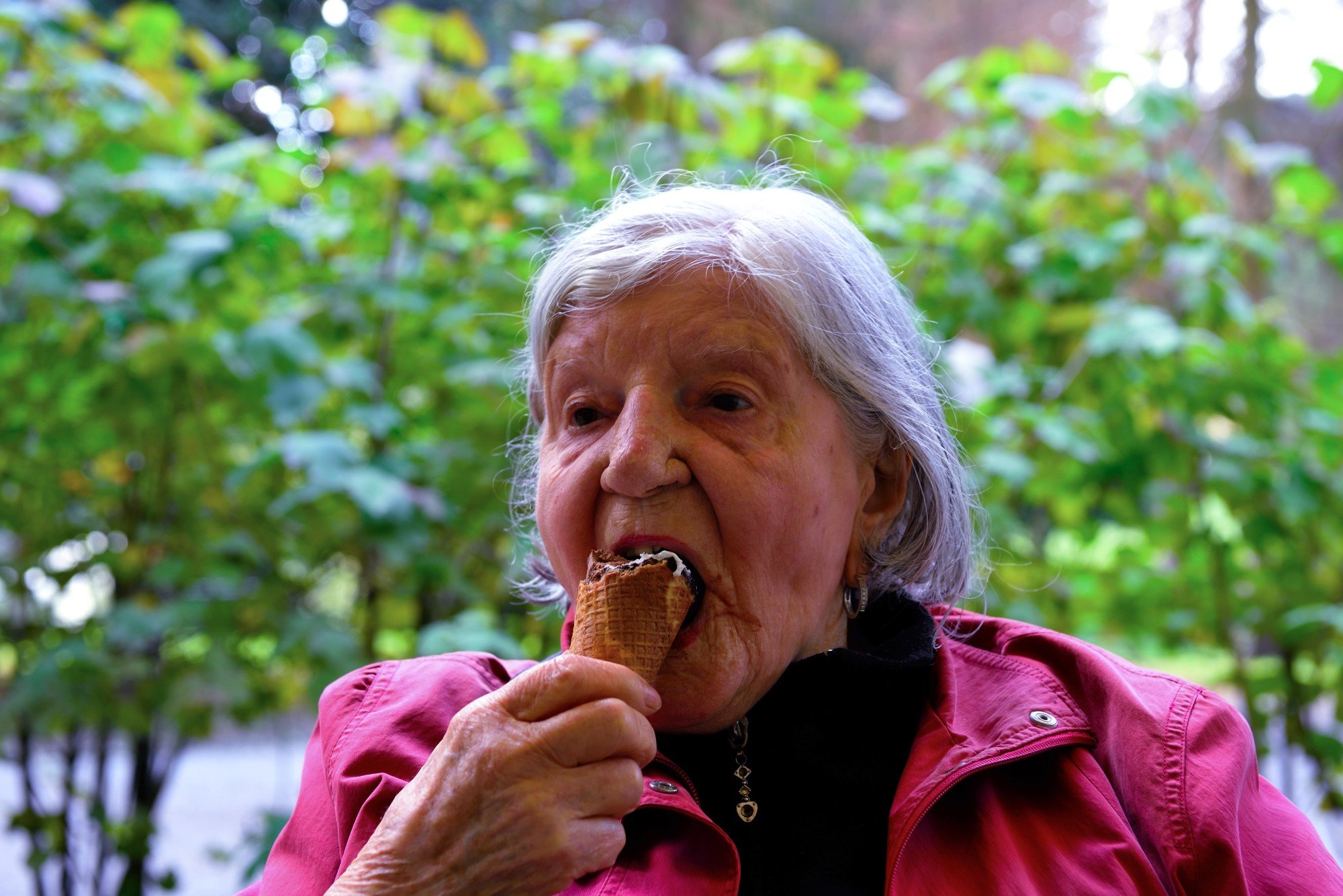
Dementia and appetite loss: how to help a loved one to keep eating and drinking when their sense of taste changes
- For writer Anthea Rowan, seeing her mother’s appetite loss was devastating, and trying to keep her interested in food and drink was a real challenge
- About 70 per cent of Alzheimer’s patients experience taste changes; a Hong Kong professor explains why – and offers 7 helpful tips to keep them eating
There were many things about my mother’s Alzheimer’s disease that were devastating – many things beyond her “forgetting”.
But one of the saddest was witnessing her loss of appetite.

When she first came to live with me, she ate with enthusiasm, eager to try everything. She enjoyed mealtimes, an occasion to be social, a chance to sample something she was certain she had never ever eaten in her life before, ever: yogurt, avocado, a slice of pizza.
She developed an insatiable sweet tooth. When I tried to understand why, I read that Alzheimer’s causes a drop in insulin sensitivity, which drives an appetite for sweet things.
How to prevent dementia: does this Amazonian tribe hold the key?
In the first months of living with me, my mother’s appetite was ferocious; she would devour handfuls of biscuits in a single sitting – a trail of crumbs down her front as evidence of what she had eaten most recently.
I had to police the quantities of snack foods she ate when she began to complain her trousers were getting too tight.
Then, quite suddenly, she lost her appetite – and her taste changed radically.
Nothing tasted as she expected. And most of it did not taste good: This is too salty. This is too hot. This is horrid.
Hong Kong cafe role-play helps to bring back memories for dementia sufferers
“This tastes of sand,” she complained one day, making a face as I tried to spoon another mouthful of home-made soup between her lips.
Nutritionist Dr Mandy Sea, an adjunct associate professor of the Hong Kong Institute of Diabetes and Obesity at the Chinese University of Hong Kong, says taste changes are common in dementia patients and can affect up to 70 per cent of individuals with Alzheimer’s disease.
These changes, she says, can vary from mild to severe and may worsen as the disease progresses. And, as I witnessed in Mum, they can further add to the misery and confusion of the illness.

Why does dementia affect our sense of taste?
Sea says dementia can affect taste buds, which detect sweet, salty, sour and bitter qualities in the things we eat. This can result in a decreased ability to perceive and differentiate between flavours.
The brain’s gustatory cortex, which is responsible for processing signals from the taste buds, controls taste perception. As dementia progressively affects all brain cells the ability to perceive different tastes is altered.
Dementia, Alzheimer’s and the rising toll on working carers
Taste perceptions may become distorted, so familiar foods may taste different or unpleasant. For example, someone with dementia may find sweet foods can taste sour, while savoury foods may taste bitter.
Foods that were once enjoyed may no longer provide the same pleasure or satisfaction, Sea says. I recall how my mother stopped enjoying the toast and marmalade she had loved, and began to refuse even a single square of chocolate.
Medications may also interfere with taste, and dementia sufferers are often prescribed a lot of drugs – to manage symptoms of Alzheimer’s, say, as well as for the other ailments that often come with ageing.
Some medications can alter flavours or leave a metallic taste in the mouth, Sea says.
Hong Kong superhero works to promote a positive image of the city’s elderly
“If a person with dementia starts resisting eating healthy meals and shows a preference for confectionery, it can be challenging to manage their dietary choices,” says Sea.
I can attest to this. I tried many ways to tempt my mother to eat or drink, on bad days turning to soft drinks and ice cream.
For a while they appealed to her. Then, not even sweetness did the trick.

Dr Sea’s seven tips for sustaining a person with dementia
-
Offer a balanced variety of foods. While accommodating preferences, ensure their diet is nutritious, as far as possible. I packed my mother’s home-made soups with fresh parsley and garlic to boost iron and immunity. A clever trick: if they enjoy sweet things, add vegetables or protein to a favourite dessert.
-
Modify the presentation. Sometimes, individuals with dementia have difficulty recognising certain foods because of changes in sensory perception. Try to make food look manageable and appealing, using colour contrast between the food and dish – say white rice in a dark bowl – so they can see it well. Cut it up so they can handle it.

-
Keep portion sizes small. They may feel intimidated with a huge plateful of food. When my mother’s portion sizes overwhelmed her, she hid leftovers for me to find days later.
-
Create a calm eating environment. Minimise distractions and make sure the room they are dining in is well lit. Eating with others can enhance their appetite.
-
While they are still able, involve them in meal preparation. This can increase their interest and willingness to eat. Give them an easy task. Be patient.

-
Offer fluids frequently. I bought my mother a drinking bottle that was easy for her to manage, to hold and to flip open, and easy for me to see how much she had – or had not – drunk. We kept it by her side all the time.
-
Monitor how much they drink. Beware of signs of dehydration – such as a dry mouth or dark urine.











